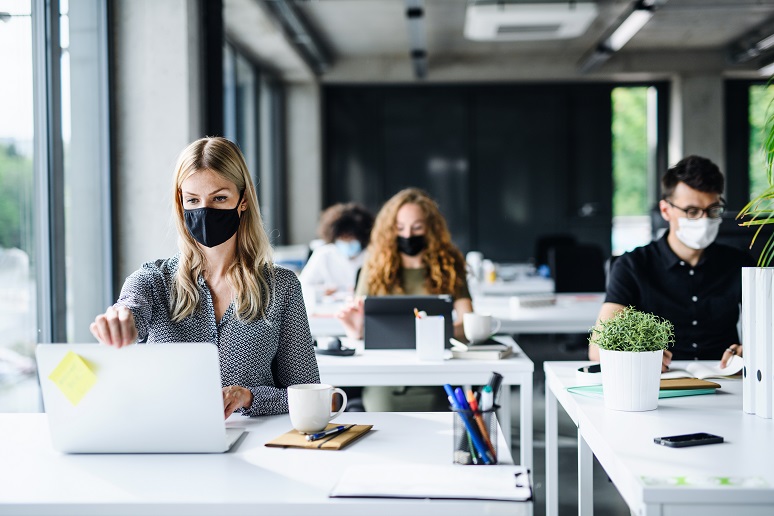This time last year, to maintain the safety and well-being of their employees, employers worldwide sent their workers home to begin the year of remote working.
This year, employers continue to keep employee safety top of mind as they develop plans to reintegrate back into the office. However, they must think beyond basic safety measures and into both the scientific considerations and legal implications of coming back to work.
“There is not going to be a certain transitory point between COVID and no COVID,” said Dr. Michael Gao, medical director of Haven Diagnostics. “From a medical perspective, there will likely be some residual COVID circulating around for some time. Employers and executives need to have the context for their return in mind as they’re making those plans.”

After understanding the implications and creating a regulatory environment in the workplace, employers can begin to analyze their plans’ legality. As they begin to reopen their offices, the biggest legal implication for employers is OSHA, the Occupational Safety and Health Administration, a federal regulatory agency that requires employers to provide a safe working environment for all employees. COVID concerns and safety measures fit under the scope of OSHA.

“You see some of these states starting to eliminate mask mandates or occupancy restrictions (like Texas, as of March 10). Some people assume that that’s a green light to be able to go back to the way things were,” said Jason Weber, a shareholder in the restrictive covenants, enforcement, and trade secrets practice at Polsinelli. “That’s not the case because you still need to ensure that you have a safe working environment.”
As for how employers can ensure they are maintaining a safe environment, Dr. Gao has several suggestions. First and foremost: wear a mask in the office.
“COVID is spread primarily by aerosol and droplet,” said Gao. “So, face masks have the highest return on time spent on wearing it.”
Beyond the general COVID safety measures, COVID education and training should also be commonplace in the office. Employers should delve beyond basic emails and policies and develop a true COVID plan that aligns with company culture.
“Companies should be aware that people don’t tend to read handbooks in a lot of depth,” said Gao. “The more that you can simplify down to a core set of principles, and the more that your employees understand that, the better the effectiveness of the education will be.”
As for vaccinations, employers can legally require workers who wish to return to the office to be fully vaccinated within reason (pregnancy and religious objections being exempt). However, Weber adds that mandating vaccines might not be the best course of action for employee morale, given the polarizing nature of both the pandemic and the vaccine itself.
“One of the things that Michael and I recommend is that employers consider more of a sticks and carrots approach, really incentivizing employees to take voluntary measures to get vaccinated,” he told D CEO.
These measures could include paid time off to get the vaccine, additional PTO should employees develop reactions to the vaccine, or even having vaccination centers on-site or near the office.
Other safety options include phasing employees as they return, or sticking to voluntary remote work environments, or other creative office solutions. Many companies have proven in the past year that teleworking can be beneficial and cost-effective without impacting productivity.
“I think that a lot of workspaces are going to be changed for some time,” said Weber. “You’re going to see a lot of employers adopting modified work schedules or full teleworking.”
“Employers need to continue to be vigilant in understanding,” added Gao. “COVID continues to be something that’s constantly evolving.”





